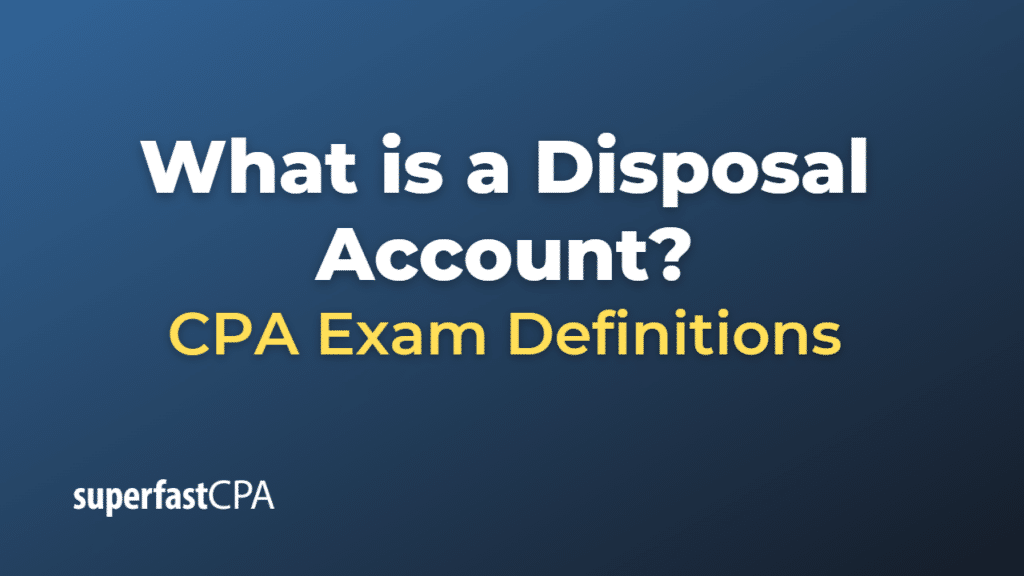Disposal Account
A disposal account in accounting is an account created to track the gain or loss associated with the disposal of a fixed asset, such as machinery, vehicles, or buildings. Disposal can occur in a variety of ways – an asset could be sold, lost or destroyed, donated, or discarded because it’s no longer usable.
When a company disposes of a fixed asset, the asset’s cost and accumulated depreciation are removed from the books. If the asset is sold, the cash received is recorded. Then, any difference between the book value of the asset (its original cost minus accumulated depreciation) and the cash received (if any) is recorded as a gain or loss on disposal. This gain or loss is tracked in the disposal account.
Example of a Disposal Account
Consider a company named Alpha Corp. that owns a delivery truck which was purchased for $50,000 five years ago. Over these years, Alpha Corp. has depreciated the truck a total of $30,000, so the net book value of the truck in the accounting books is $20,000 ($50,000 original cost – $30,000 accumulated depreciation).
Now, Alpha Corp. decides to sell the truck and manages to get a price of $25,000 for it. Let’s go through the necessary journal entries for this transaction:
- Remove the truck from the books:
Debit (Decrease) Accumulated Depreciation: $30,000 Credit (Decrease) Truck Asset Account: $50,000 - Record the cash received:
Debit (Increase) Cash: $25,000 - Record the gain on the disposal:
Since the truck was sold for $25,000, which is $5,000 more than its book value of $20,000, Alpha Corp. made a gain of $5,000 on the disposal. This is recorded as follows:
Credit (Increase) Gain on Sale of Assets (a Disposal Account): $5,000
So, at the end of this process, Alpha Corp.’s total assets have not changed (the truck asset was replaced by cash), but it has a $5,000 gain appearing in the Gain on Sale of Assets account, which is a disposal account. This gain will appear in the company’s income statement and contribute to its net income for the period.













